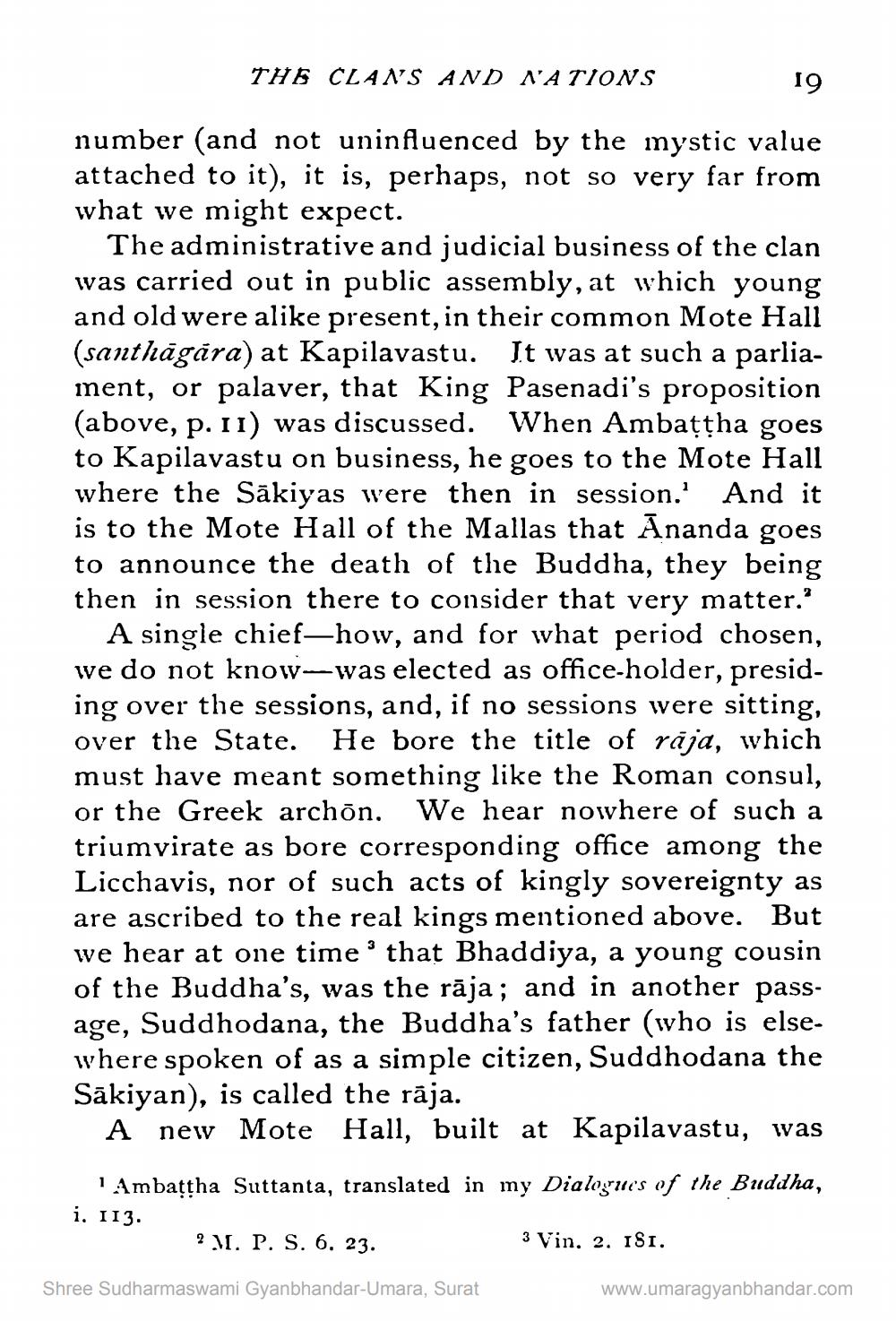________________
THE CLANS AND NATIONS
19
number (and not uninfluenced by the mystic value attached to it), it is, perhaps, not so very far from what we might expect.
The administrative and judicial business of the clan was carried out in public assembly, at which young and old were alike present, in their common Mote Hall (santhăgăra) at Kapilavastu. It was at such a parliainent, or palaver, that King Pasenadi's proposition (above, p. II) was discussed. When Ambattha goes to Kapilavastu on business, he goes to the Mote Hall where the Sākiyas were then in session. And it is to the Mote Hall of the Mallas that Ananda goes to announce the death of the Buddha, they being then in session there to consider that very matter.”
A single chief-how, and for what period chosen, we do not know-was elected as office-holder, presiding over the sessions, and, if no sessions were sitting, over the State. He bore the title of rāja, which must have meant something like the Roman consul, or the Greek archon. We hear nowhere of such a triumvirate as bore corresponding office among the Licchavis, nor of such acts of kingly sovereignty as are ascribed to the real kings mentioned above. But we hear at one time that Bhaddiya, a young cousin of the Buddha's, was the rāja ; and in another passage, Suddhodana, the Buddha's father (who is elsewhere spoken of as a simple citizen, Suddhodana the Sākiyan), is called the rāja.
A new Mote Hall, built at Kapilavastu, was 1 Ambaţtha Suttanta, translated in my Dialogues of the Buddha, i, 113. ?M. P. S. 6. 23.
3 Vin. 2. ISI.
Shree Sudharmaswami Gyanbhandar-Umara, Surat
www.umaragyanbhandar.com




